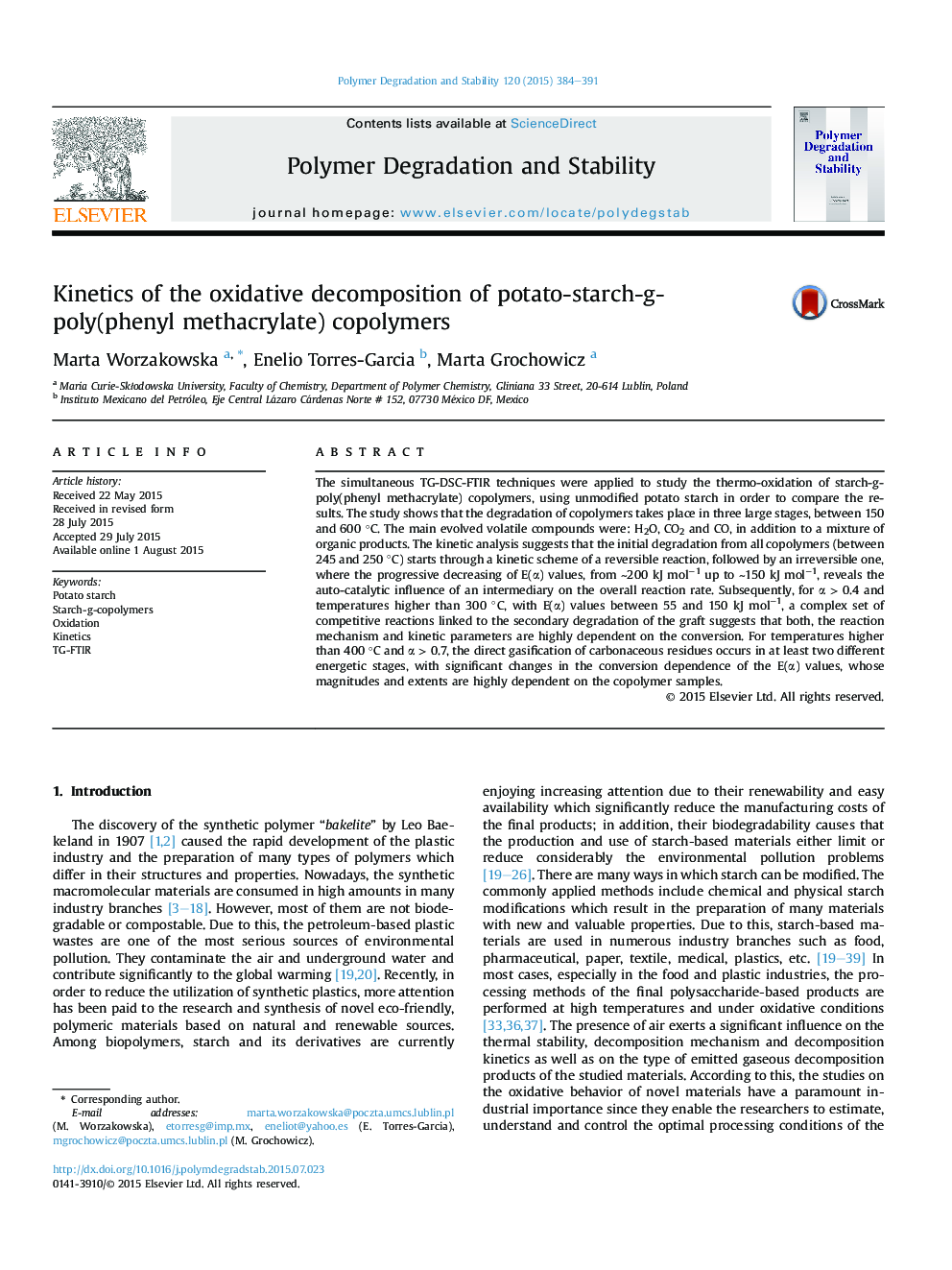| Article ID | Journal | Published Year | Pages | File Type |
|---|---|---|---|---|
| 5201322 | Polymer Degradation and Stability | 2015 | 8 Pages |
The simultaneous TG-DSC-FTIR techniques were applied to study the thermo-oxidation of starch-g-poly(phenyl methacrylate) copolymers, using unmodified potato starch in order to compare the results. The study shows that the degradation of copolymers takes place in three large stages, between 150 and 600 °C. The main evolved volatile compounds were: H2O, CO2 and CO, in addition to a mixture of organic products. The kinetic analysis suggests that the initial degradation from all copolymers (between 245 and 250 °C) starts through a kinetic scheme of a reversible reaction, followed by an irreversible one, where the progressive decreasing of E(α) values, from â¼200 kJ molâ1 up to â¼150 kJ molâ1, reveals the auto-catalytic influence of an intermediary on the overall reaction rate. Subsequently, for α > 0.4 and temperatures higher than 300 °C, with E(α) values between 55 and 150 kJ molâ1, a complex set of competitive reactions linked to the secondary degradation of the graft suggests that both, the reaction mechanism and kinetic parameters are highly dependent on the conversion. For temperatures higher than 400 °C and α > 0.7, the direct gasification of carbonaceous residues occurs in at least two different energetic stages, with significant changes in the conversion dependence of the E(α) values, whose magnitudes and extents are highly dependent on the copolymer samples.
